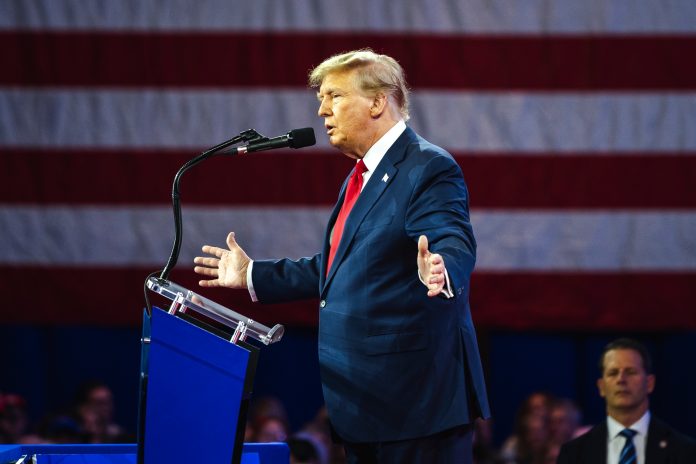Republican presidential candidate Donald Trump pledged on Thursday that if elected in November 2024, he will prevent any state from banning gasoline-powered cars and trucks. Speaking at a rally in Saginaw, Michigan—a crucial swing state and home to the Detroit Three automakers—Trump emphasized his commitment to maintaining gas-powered vehicle production, significantly contrasting current policies promoting electric vehicles (EVs).
“When I’m president, no state in America will be allowed to ban gas-powered cars or trucks. I guarantee it,” Trump stated, emphasizing this as a significant campaign pledge. This statement aims at both the future of the auto industry and voters in Michigan, a crucial state in the presidential race. Additionally, he hinted at the possibility of reconsidering federal support for electric vehicles, mentioning in August that he was contemplating ending the EV tax credit.
Trump’s stance directly challenges initiatives like California’s groundbreaking plan to phase out gasoline-only vehicles by 2035. In 2022, California approved its zero-emissions mandate and requested an Environmental Protection Agency (EPA) waiver under the Clean Air Act in May 2023. The rule, adopted by 11 other states, requires rising percentages of new vehicle sales to be electric or plug-in hybrids starting in 2026.
While the Biden administration has not endorsed setting a specific end date for gasoline-only vehicle sales, it has pushed 50% of new vehicles to be electric by 2030, leveraging billions in tax credits and grants to accelerate the EV transition. New EPA rules finalized in March aim to cut vehicle emissions by 49% by 2032, projecting that between 35% and 56% of new vehicles sold between 2030 and 2032 will need to be electric to meet emissions targets.
Trump’s position represents a clear alternative to these policies as he looks to rally support in regions like Michigan, where the auto industry’s evolution toward electrification has raised questions about the feasibility of meeting California’s stringent EV requirements.
While supporting environmental goals, automakers have expressed concerns over the timeline, with some arguing that achieving California’s 2035 target could be difficult, especially in states with lower EV adoption rates.
Moreover, Trump’s promise to safeguard gas-powered vehicles underscores his broader campaign focus on economic and industrial policies. It directly appeals to voters concerned about the transition to electric vehicles and their impact on traditional manufacturing jobs.



